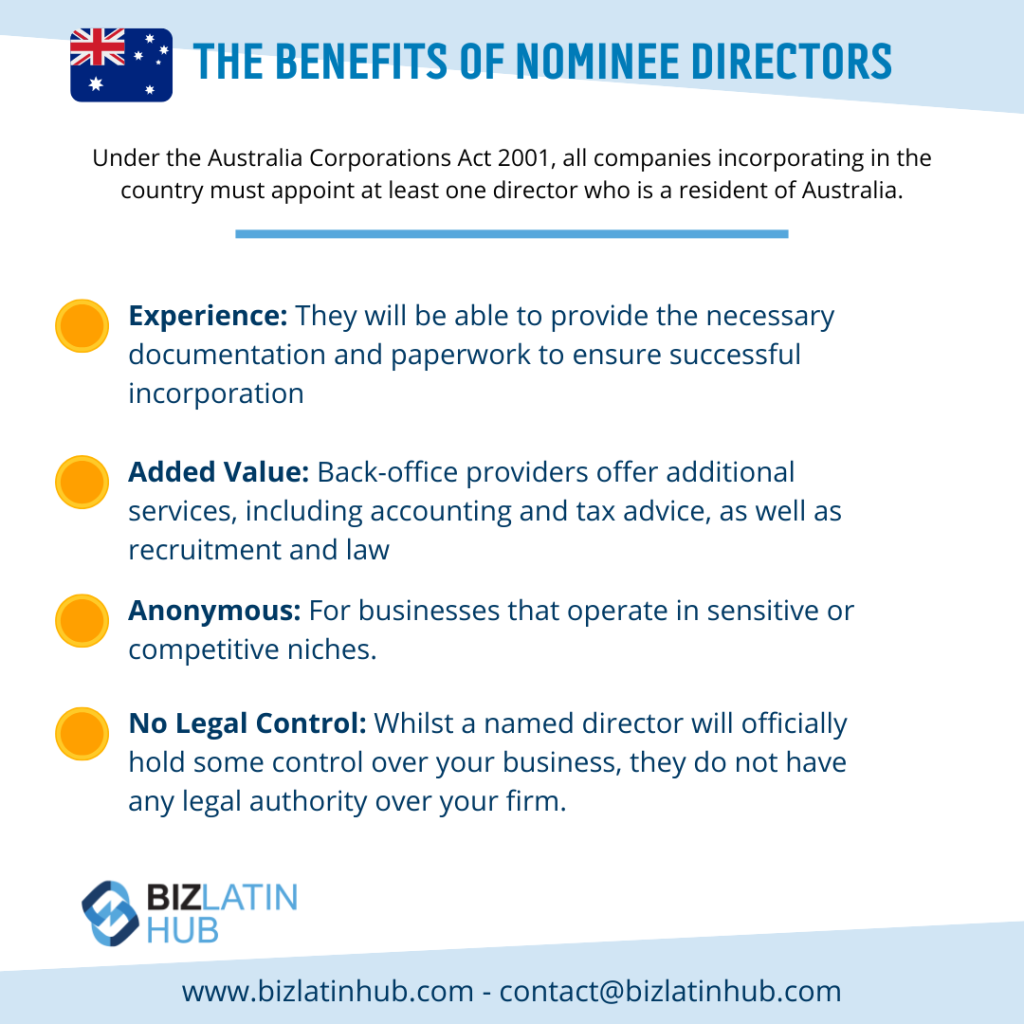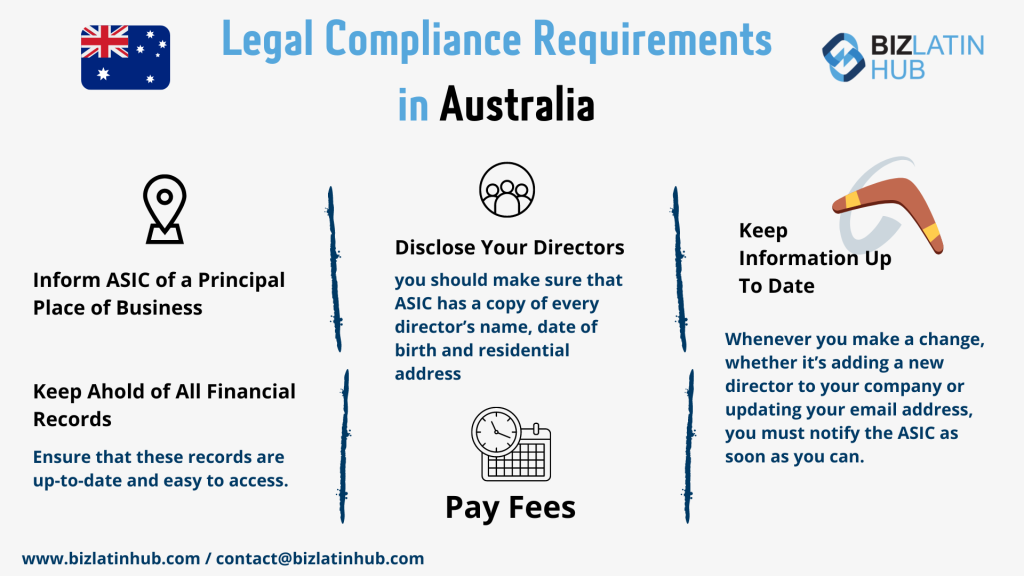Australia is one of the world’s most lucrative and stable markets, not only boasting a growing GDP and economy but benefiting from ties with many other key economies around the world through free trade agreements. When expanding into a new market to take your business to the next level, Australia should be at the top of your list, home to opportunities in abundance.
Before incorporating a company in Australia, you must meet minimum requirements that are set out by the government, and one of those is having a resident director in the country. The good news is that there are ways to overcome the challenges of requiring a resident director, and below, we offer an introduction to resident directors and explain why they are needed.

Why Resident Directors Are Required in Australia?
Under the Australia Corporations Act 2001, all companies incorporated in the country must appoint at least one director who is a resident of Australia. This person can be an Australian citizen or a migrant with rights to live and work in the country. If you’re looking to incorporate a public company in Australia, then the requirement stakes are heightened, with companies requiring at least two Australian residents and a third director, who can be from overseas.
Many entrepreneurs consider this requirement a barrier to entry, encouraging them not to set up a company in Australia, but the good news is that a nominee can be used as a director.
What is a Resident Director?
All companies that operate in Australia must have a resident director at all times, both when incorporating and throughout everyday operations. To be eligible to be a director, you must:
- be 18 years of age or older
- be a resident of Australia, or hold Australian citizenship
- consent on paper to taking on the responsibilities of a company director
Using a Nominee Director
If you cannot locate or agree upon an Australian resident director to assist when expanding your business overseas, it is possible to use a nominee resident director in lieu. Back-office companies, including Biz Latin Hub, are able to provide a nominee who can serve as a director to your firm, in order to enable smooth incorporation and everyday operations.
Nominee directors will serve their roles in name only, and will not have any responsibilities in your business other than signing paperwork. Indeed, nominees do not play an active role in your company, they do not take a share of your profits or assets, and they can be removed from their role if and when required. For example, if you were to apply for and be granted Australian citizenship, you could remove the nominee director from your business overnight. If you were to use a nominee director service, then you would draft a letter of resignation with the nominee director, and use this when you want to regain total control over your firm.
It is entirely legal to appoint a resident or nominee director for your new business venture, but working with an experienced and professional company will ensure total compliance.

The Benefits of Nominee Directors
- Experience: Most companies that offer a nominee director service have experience in company incorporation and working with foreign businesses in Australia. They will be able to provide the necessary documentation and paperwork to ensure successful incorporation takes place and will help you to open a corporate bank account, too.
- Added Value: Back-office providers offer additional services, including accounting and tax advice, as well as recruitment and law. All companies must also appoint a resident Public Officer under the Income Tax Assessment Act 1936 – using a nominee from the same company will ensure consistency and clarity within your organization and able you to operate freely and without challenges.
- Anonymous: For businesses that operate in sensitive or competitive niches, or for entrepreneurs and individuals with a vested interested in many countries and firms, it makes sense to remain anonymous and ensure your personal information is kept out of the Australian Business Register. Appointing a nominee ensures this happens.
- No Legal Control: Whilst a named director will officially hold some control over your business, they do not have any legal authority over your firm and a power of attorney will offer you additional peace of mind that your company is yours only. A nominee ensures you know where you stand and you can operate in the country freely without the worry of a director trying to assert authority or demand payment for time/services.
The Drawbacks of Nominee Directors
- Cost: One drawback to using nominee directors is the cost. Agents may be asked to sign occasional documentation or other administrative duties, resulting in one-off payments. Most nominee directors also charge a monthly or annual fee for their time.
- Confidentiality: For businesses operating in confidential industries, you should think twice before using a nominee director and ensure that you only work with a trusted organization who can provide anonymity and confidentiality so that sensitive data and information about your business does not enter into the wrong hands (competitors’).
- Legal Protections: Before appointing a nominee, you should ensure that you have the necessary legal protections in place that will prevent issues arising once your company is operational. You should work to safeguard the ownership of your business and have an exit strategy in place to protect all parties and shareholders.
Biz Latin Hub Can Help
At the Biz Latin Hub, we offer a range of back-office services designed to help international investors and entrepreneurs start a business in another country. Whether you’re setting up a brand new venture in Australia, or you’re expanding your business into the market to take advantage of its thriving economy and trade links with other nations, we are on hand to help.
Don’t hesitate to contact the team today, and we’ll get back to you with a personalized nominee/resident director solution for your firm as soon as we can.






